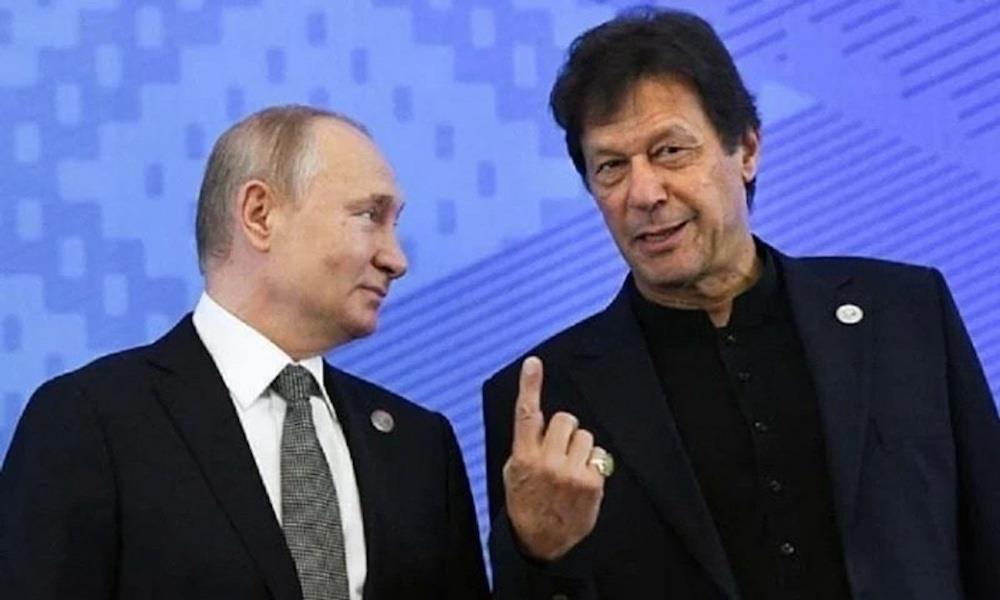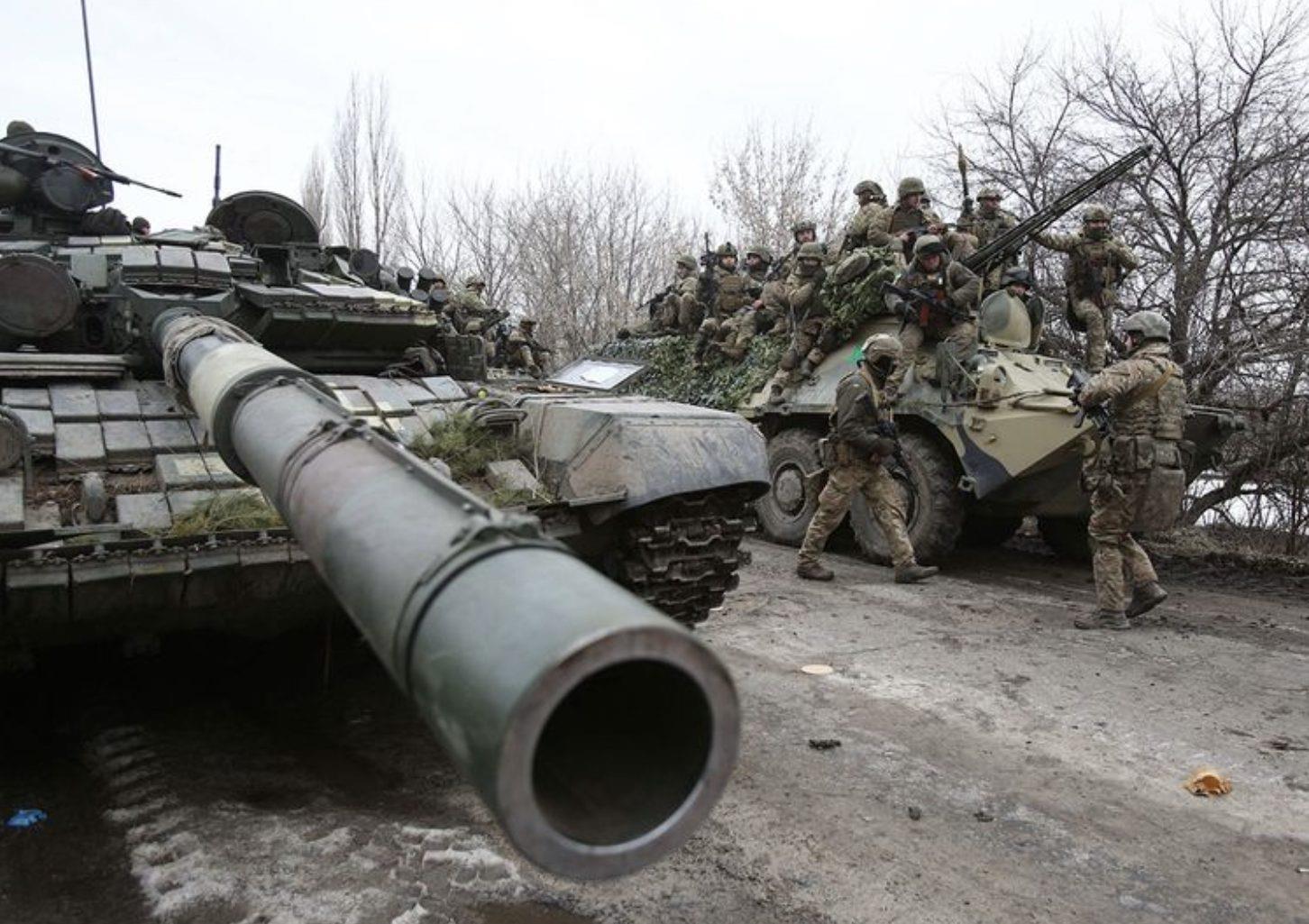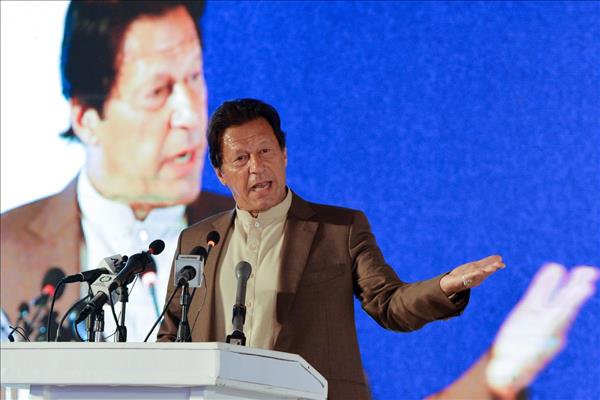
Khan duels with EU on Russia-Ukraine 'neutrality'
PESHAWAR – Pakistan has slammed the European Union for what it sees as violations of diplomatic norms by pressuring Islamabad to condemn Russia's recent invasion of Ukraine. The kerfuffle has underscored perceptions that Islamabad is aligning with Russia and China over the US and West in what some see as a fast emerging new Cold War.
It was lost on few observers that Prime Minister Imran Khan went ahead with a planned two-day visit to Moscow just as Russia was launching its cross-border assault on Ukraine, which has since triggered massive Western sanctions against Russia.
Last week, a group of 22 Western diplomats including many European Union (EU) members issued a joint public statement urging Islamabad to take a clear stance against Russia and condemn its aggression in Ukraine by supporting a UN resolution. The US embassy in Islamabad also endorsed the statement through its official Twitter handle.
In defiance of the demand, Pakistan opted to abstain from voting on last week's UN General Assembly resolution calling on Russia to stop its offensive and immediately withdraw its troops from Ukraine. Last week's vote saw 141 states in favor of the motion, five against and 35 abstentions including Pakistan, India, China, Sri Lanka and Bangladesh from East and South Asia.
At a weekly news briefing on March 4, Pakistan's Foreign Office confirmed that it approached the diplomats over their joint statement and conveyed to them Islamabad's deep concern for exerting pressure on the country to condemn Russia's military action in Ukraine. Many in Pakistan's foreign policy circles saw the letter as a clear“with us or against us” pressure ploy.
“We took note of the pressure tactics and expressed our concern during a subsequent meeting with a group of ambassadors who violated diplomatic norms by using social media channels to force us to vote against Russia in the general assembly session. We believe it is not the way diplomacy should be practiced, and we think they have since realized it,” Foreign Office spokesperson Asim Iftikhar said.
The joint diplomatic statement was signed by Pakistan's major development partners with whom it carries out bilateral trade worth billions of dollars per annum. They include France, Germany, Greece, Hungary, Italy, Portugal, Poland, Romania, Spain, Sweden, Austria, Belgium, Bulgaria, Czech Republic, Denmark, Japan, the Netherlands, Norway, Switzerland, Canada, the UK and Australia.

Russian President Vladimir Putin and Pakistan Prime Minister Imran Khan in a file photo. Image: Facebook
“This certainly would harm Pakistan's economic interests and embarrass thousands of expatriate Pakistanis earning living in these countries. We export goods worth $8 billion to the UK, Germany, Netherlands, Spain, Italy, Belgium, France, Canada, Poland and Portugal, $4 billion to the US and a paltry $277 million to Russia,” Farrukh Saleem, an Islamabad-based Pakistani political scientist, economist and financial analyst, told Asia Times.
“Over 80 million labor force of Pakistan are dependent mostly on exports to these destinations,” he added.
The diplomatic situation went further downhill on March 6 when Pakistan Prime Minister Imran Khan publicly declared that Pakistan was not a“slave to anyone”, in alluding to the joint statement. Addressing a public meeting in Melsi, central Punjab, Khan asked where these Western countries were when India annexed Kashmir and killed hundreds of Kashmiris.
“Did you write such a letter to India as well? When India broke international law in Kashmir and abrogated Kashmir's autonomous status, did anyone of you break ties with India and criticize its atrocities in Kashmir? What are we? Are we your slaves? Will we do what you say?” Khan questioned.
Some saw the comment as misplaced in the context.“The PM should have gone through some recent history to know what the EU had done for the Kashmir issue before blaming them for ignoring Kashmir,” Senator Taj Haider, a senior Pakistan People's Party (PPP) leader, told Asia Times.
“The European Parliament had already passed a resolution calling for the plebiscite in Kashmir under the UN resolutions. The UN Human Rights Commission in Geneva has been demanding for the last four years that referendum was the only solution to the Kashmir dispute,” he added.
Many analysts attribute Pakistan's“neutrality” in the Ukrainian crisis to the country's growing military and economic dependence on China, which is an ally of Russia. Beijing has refused to refer to Russia's intervention in Ukraine as an“invasion” and blamed the US and West for precipitating the crisis.
Russia-Pakistan ties have warmed in recent years, largely as a countermeasure to growing ties between rival India and the US. Strategically, the two sides carried out their first-ever joint military drills in 2016.
Economically, Pakistan and Russia signed an agreement for the Pakistan Stream Gas pipeline from Karachi to Kasur, and reached a price accord in December 2016, but progress on the project has been slow. Pakistan has also granted Russia access to the Gwadar Port , which is under development with Chinese capital.
Leading columnist and TV anchor Kamran Yousaf recently wrote that Pakistan's balancing act stems from efforts to diversify its foreign policy options. He noted that Prime Minister Khan defended his visit to Moscow while tensions were brewing in the name of pursuing an“independent foreign policy.”
The question now is whether Pakistan can afford to pay the price of such a policy?
Pakistan's stance on Ukraine has already resulted in the postponement of UK National Security Adviser Dr Moeed Yusuf's planned visit. Although Yusuf dismissed the notion that the postponement was linked to Pakistan's“neutral” stand on the Ukraine conflict, independent observers believe it was related.

Ukrainian servicemen get ready to repel an attack in Ukraine's Lugansk region on February 24, 2022. Photo: Facebook / Gulf News
In another development, on March 4 the US said it had warned Pakistan that the war in Ukraine could have regional and global consequences.
“We have briefed the government of Pakistan on the impact that Russia's unprovoked war against Ukraine could have on the regional and global security,” a US State Department spokesperson was quoted to have told the Dawn newspaper when asked to respond to these developments.
Diplomatic sources told Asia Times that Pakistan army chief General Qamar Javad Bajwa and Director-General Inter-service Intelligence (ISI) General Nadeem Anjum had planned a visit to the US in the coming weeks to deal with the collateral damage caused by Khan's outburst against the EU and the US.
The sources claimed that the military leadership did not back Khan's outburst against the EU in a public meeting.

Legal Disclaimer:
MENAFN provides the information “as is” without warranty of any kind. We do not accept any responsibility or liability for the accuracy, content, images, videos, licenses, completeness, legality, or reliability of the information contained in this article. If you have any complaints or copyright issues related to this article, kindly contact the provider above.






















Comments
No comment